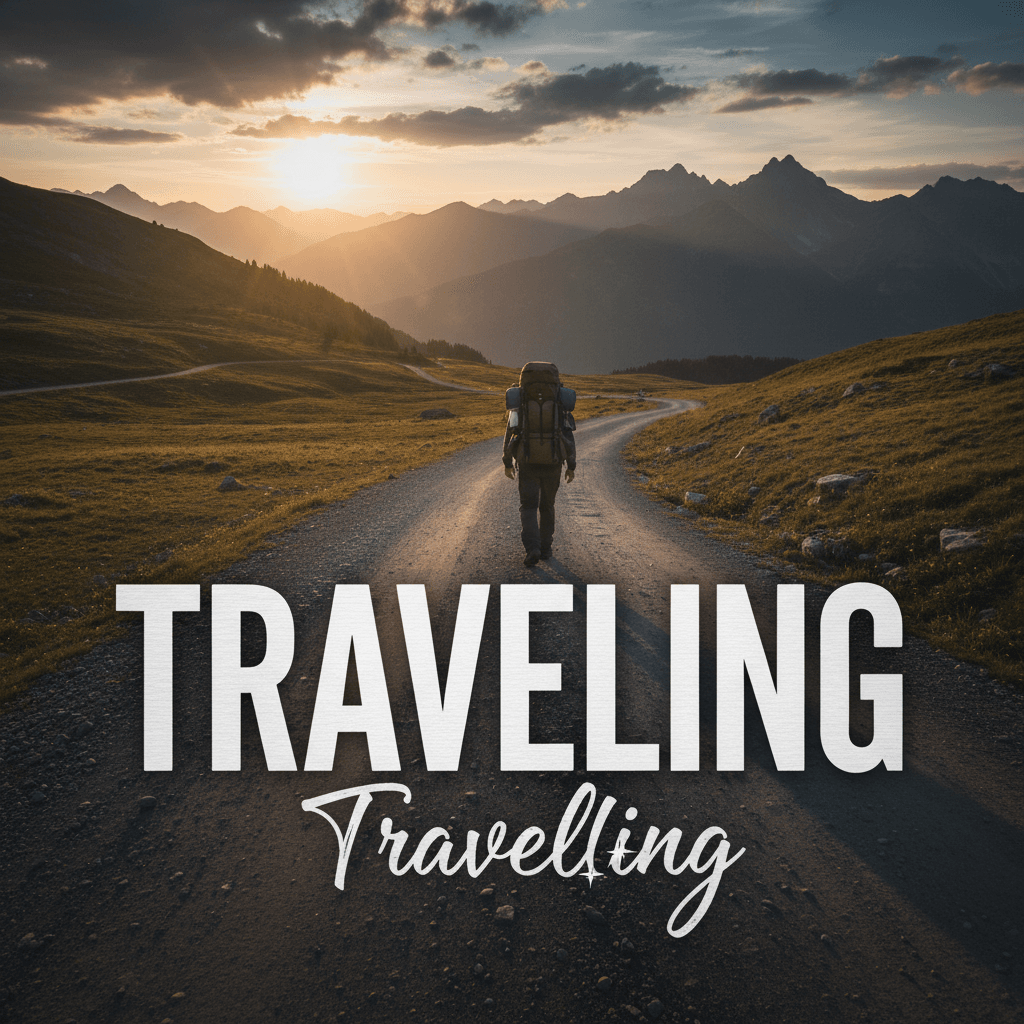Traveling vs. Travelling: What’s the Difference?
 Both traveling and travelling mean the same thing — moving from one place to another — but they follow different spelling rules in American and British English.
Both traveling and travelling mean the same thing — moving from one place to another — but they follow different spelling rules in American and British English.
Here’s the simple rule:
- Traveling → American English
- Travelling → British English
Traveling: American English
Meaning
“Traveling” (with one “l”) is the preferred spelling in American English.
It’s used for all forms of writing — from business emails to travel blogs — in the United States and countries that follow American spelling.
Examples (10 total)
- I love traveling to new countries.
- She’s traveling for work this week.
- They spent the summer traveling across the U.S.
- My dream job would involve traveling the world.
- He met many people while traveling abroad.
- Traveling can teach you more than school sometimes.
- I’m tired of traveling all the time for business.
- We saved money for a year before traveling to Europe.
- The traveling exhibit will visit New York next month.
- She writes a blog about traveling with pets.
🧠 Tip:
If you’re writing for an American audience, always use traveling (one “l”).
Travelling: British English
Meaning
“Travelling” (with two “l”s) is the preferred spelling in British English, Australian English, and Canadian English.
It follows the British rule:
When a word ends with a single vowel + consonant, double the consonant before adding -ing or -ed if the stress is not on the first syllable.
Since travel has stress on the first syllable, both spellings are technically fine — but British English doubles the “l” for consistency.
Examples (10 total)
- She enjoys travelling by train across Europe.
- We’ll be travelling to London next week.
- His job involves travelling to different countries.
- They spent a year travelling around Asia.
- I met her while travelling through Italy.
- Travelling abroad can broaden your horizons.
- He dislikes travelling long distances.
- The company pays for all travelling expenses.
- They were travelling when the news broke.
- Travelling together strengthened their friendship.
🧠 Tip:
If you’re writing for the U.K., Australia, or Canada, use travelling (two “l”s).
Quick Comparison Table
| Region | Correct Spelling | Example |
|---|---|---|
| United States | Traveling | I love traveling with my family. |
| United Kingdom | Travelling | I love travelling with my family. |
| Canada / Australia | Travelling | She’s travelling overseas. |
| Formal Writing (US) | Traveling | Business traveling can be exhausting. |
Why the Difference Exists
The spelling split comes from Noah Webster, an American lexicographer who simplified English spellings in the 1800s.
He preferred dropping double letters when not needed — hence traveling instead of travelling, color instead of colour, etc.
British English kept the traditional forms, while American English favored shorter versions.
Other Word Forms
| Form | American English | British English |
|---|---|---|
| Present tense | travel | travel |
| Past tense | traveled | travelled |
| Gerund | traveling | travelling |
| Noun | traveler | traveller |
How to Remember
👉 Traveling = American (shorter, like color and honor).
👉 Travelling = British (double letters, like colour and honour).
💡 Memory Trick:
“Americans take the short trip (traveling); the British take the long journey (travelling).”
Why It’s Easy to Confuse Them
They sound identical and mean the same thing — only the spelling differs.
Even AI tools can mix them depending on default language settings, but Humanizey ensures your text stays consistent with your regional writing style automatically.
FAQs
1. Is “travelling” wrong in American English?
Not wrong — just uncommon. Americans prefer traveling.
2. Is “traveler” or “traveller” correct?
Same rule applies:
- Traveler (American English)
- Traveller (British English)
3. Do grammar checkers flag it as wrong?
They might — if your spell-check is set to the opposite language region.
4. Should I use one style across all writing?
Yes. Be consistent — don’t switch between traveling and travelling in the same text.
Practice: Choose the Correct Spelling (“Traveling” or “Travelling”)
(Answers are listed at the end.)
- I love ___ to new countries every summer.
- She’s ___ for work this week.
- We met while ___ through Spain.
- His dream job involves constant ___.
- The ___ couple shared stories from Africa.
- Are you ___ abroad this winter?
- The ___ circus arrived in town yesterday.
- She started a blog about her ___ adventures.
- He dislikes long hours of ___.
- The company pays for employees’ ___ costs.
Answers
- traveling / travelling
- traveling / travelling
- traveling / travelling
- traveling / travelling
- traveling / travelling
- traveling / travelling
- traveling / travelling
- traveling / travelling
- traveling / travelling
- traveling / travelling
